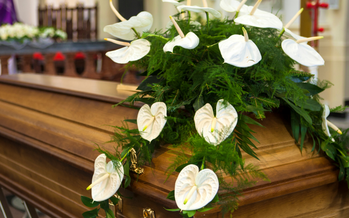Search
Human composting and the Catholic Church
-
 September 19, 2025On September 11, 2025, Governor Murphy signed into law a bill (A4085/S3007) legalizing “natural organic reduction,” commonly known as “human composting.” This process offers an alternative to traditional burial by transforming a human body into nutrient-rich soil over several weeks. The body is placed in a specialized vessel with organic materials such as wood chips and alfalfa. Naturally occurring microbes, supported by carefully controlled conditions of moisture, oxygen, and temperature, decompose the body and plant matter into usable soil. Upon completion, the soil is sifted to remove any non-organic materials; the remaining bones are ground into sand-like particles, and the mixture is cured for use in planting trees, flowers, or conservation efforts. New Jersey is the 14th state to pass such legislation, and it becomes effective in New Jersey July 11, 2026.
September 19, 2025On September 11, 2025, Governor Murphy signed into law a bill (A4085/S3007) legalizing “natural organic reduction,” commonly known as “human composting.” This process offers an alternative to traditional burial by transforming a human body into nutrient-rich soil over several weeks. The body is placed in a specialized vessel with organic materials such as wood chips and alfalfa. Naturally occurring microbes, supported by carefully controlled conditions of moisture, oxygen, and temperature, decompose the body and plant matter into usable soil. Upon completion, the soil is sifted to remove any non-organic materials; the remaining bones are ground into sand-like particles, and the mixture is cured for use in planting trees, flowers, or conservation efforts. New Jersey is the 14th state to pass such legislation, and it becomes effective in New Jersey July 11, 2026.
The Catholic Church, through the U.S. Conference of Catholic Bishops (USCCB), opposes the practice of human composting as it fundamentally conflicts with the Church’s reverence for the human body and its teachings on the resurrection of the body. The Church upholds the dignity of the human body, even after death, as a temple of the Holy Spirit, deserving of respectful care. While the Church permits cremation as an acceptable alternative to traditional burial, it insists that the remains be treated with reverence and interred in a sacred place dedicated to prayer and remembrance.
In its statement dated March 23, 2023, the USCCB emphasized that the complete disintegration of the body into soil, leaving no distinguishable remains to be interred, prevents the establishment of a sacred burial site. This absence of a tangible, respectful place for prayer and memorialization is inconsistent with the Church’s understanding of Christian burial, which expresses the hope of the bodily resurrection and honors the dignity of the deceased.
It is important for all funeral homes in New Jersey to be aware of Catholic teaching on this process.
Getty image.

 Translate
Translate